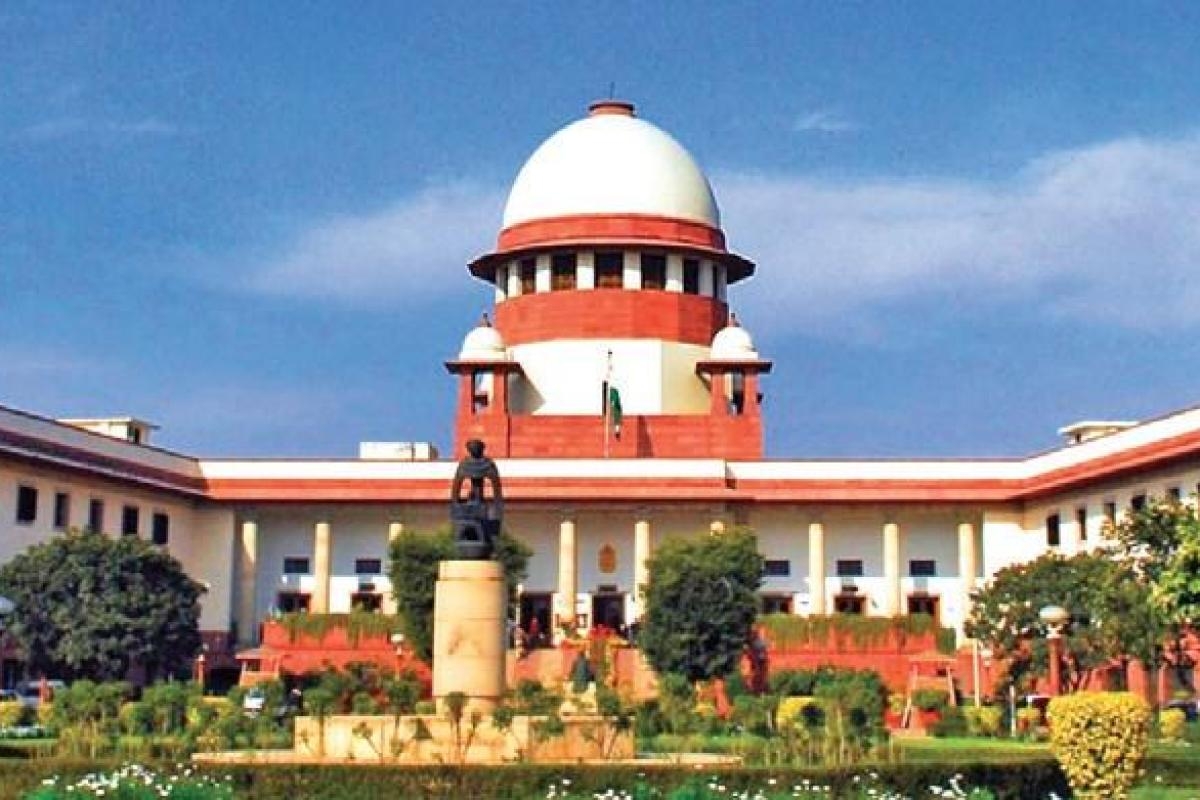EC defends integrity of EVMs in SC, asserts it can’t be manipulated
The Election Commission of India (ECI) defended the integrity of the electronic voting system, asserting that it was not prone to any external interference or manipulations.
The top court judgment came on a batch of appeals filed by Jharkhand and some individuals against the Jharkhand High Court judgment, which quashed the notification.

Supreme Court of India. (Photo Courtesy: Twitter)
The Supreme Court on Tuesday said the quality of education of the school-going children cannot be compromised by giving 100 per cent reservation in favour of the teachers of the same districts and prohibiting meritorious teachers’ appointment.
The top court quashed a 2016 notification issued by Jharkhand to provide for 100 per cent reservation for local residents in district cadre Class III and Class IV posts in the 13 scheduled districts of the state.
A bench of Justices M.R. Shah and B.V. Nagarathna said: “If the candidates belonging to other areas (non-scheduled areas/districts) are given an opportunity to impart education (who may be more meritorious than the candidates belonging to the scheduled areas/districts), than it will be more beneficial to the students belonging to the scheduled areas and their quality of the education shall certainly improve. The quality of education of the school-going children cannot be compromised by giving 100 per cent reservation in favour of the teachers of the same/some districts and prohibiting the appointment to more meritorious teachers.”
Advertisement
The bench, in its 107-page judgment, said notification making 100 per cent reservation for the local residents of the concerned scheduled area/districts (reservation on the basis of residence) is ultra vires to Article 35 read with Article 16(3) of the Constitution.
“100% reservation provided for the local residents of the concerned scheduled districts/areas only would be violative of Article 16(2) of the Constitution of India and affecting rights of the other candidates/citizens of non-scheduled areas/districts guaranteed under Part III of the Constitution of India,” Justice Shah, who authored the judgment on behalf of the bench, said.
The bench noted that it may be true that so far as basic education (at the level of primary section) is concerned, it may help students at the primary level (while providing basic education) to be taught in their own tribal language. But the same principle may not be applicable when the question is of providing education at higher level viz. above Class 5, it added.
The top court judgment came on a batch of appeals filed by Jharkhand and some individuals against the Jharkhand High Court judgment, which quashed the notification. Holding the notification unconstitutional, the high court quashed the appointments of the trained graduate teachers made pursuant to the advertisement in the scheduled districts relating to the local residents of those districts.
The original respondents – candidates belonging to the 13 scheduled districts have preferred present appeals.
The top court noted that as per Article 16(3) read with Article 35, local domicile reservation can be provided only through a law enacted by the Parliament and the state legislature has no power to do so. It added that the notification is held to be void under Article 13 for violating fundamental rights and declared to be ultra vires.
The top court referred to the law laid down by a constitution bench in 2020, Chebrolu Leela Prasad Rao and others versus State of Andhra Pradesh, where 100 per cent reservation given for Scheduled Tribes members in teaching posts in scheduled areas in Andhra Pradesh was struck down.
The state government and the successful candidates belonging to the scheduled districts contended that the notification making 100 per cent reservation for local residents of the scheduled areas was absolutely within the scope, ambit and powers of the Governor in exercise of para 5 of the Fifth Schedule to the Constitution.
Citing various top court judgments, the bench said it was observed and held that Para 5 of the Fifth Schedule confers power on the Governor, it is not meant to confer an arbitrary power. “The Constitution can never aim to confer any arbitrary power on the constitutional authorities. They are to be exercised in a legal and rational manner keeping in view the objectives and provisions of the Constitution,” it said.
Noting that the state government had told the high court that the measure was taken in order to overcome the factors of low human development indices, backwardness, poverty etc, in the scheduled districts, the top court directed that instead of fresh/de novo recruitment process by setting aside the appointments already made in the scheduled districts/areas, the state shall revise the merit list based on the already published cut off obtained by the last selected candidates in each TGT subject against the respective categories with respect to entire state and respective candidates belonging to the non-scheduled areas and scheduled areas (districts) shall be adjusted accordingly on the basis of individual merit of the candidates.”
Advertisement